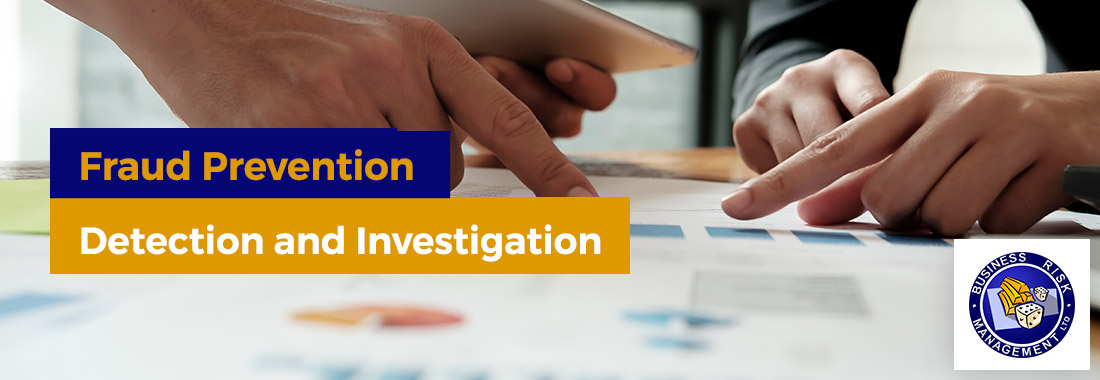Fraud Prevention, Detection and Investigation
Benefits
Course Overview
- How would you know if fraud was occurring in your organisation?
- Does your organisation have a fraud prevention strategy?
- Do you have a formal programme to tackle the risk posed by fraud?
- Do you have the use of any automated fraud detection techniques?
- If fraud is suspected do you have a clearly defined approach for managing the investigation?
- This course will help you significantly enhance your approach in all these key areas
After completing this course you will be able to
- Evaluate and challenge management’s fraud risks
- Think like a fraudster – the only way to spot frauds
- Apply successful techniques to help prevent fraud
- Promote an effective fraud prevention process
- Adopt data mining as a fraud prevention and detection tool
- Apply an effective fraud investigation process
- Apply audit skills to fraud investigation
- Spot when someone is not telling you the truth
After completing this course you will be able to:
- Evaluate and challenge management’s fraud risks
- Think like a fraudster – the only way to spot frauds
- Apply successful techniques to help prevent fraud
- Promote an effective fraud prevention process
- Adopt data mining as a fraud prevention and detection tool
- Apply an effective fraud investigation process
- Apply audit skills to fraud investigation
- Spot when someone is not telling you the truth
Who should attend
Who should attend
- Managers who need to learn about the most modern approaches to fraud prevention and detection
- Newly appointed fraud specialists
- Auditors who need to learn about the most modern approaches to fraud prevention and detection
- Members of fraud teams who need to learn more about targeting fraud
Course Details
Course Level
- This is an intermediary level course and delegates should have 12 months experience in Internal Audit (or other assurance roles)
- Delegates should have a good educational standard and/or a professional qualification or be in the process of studying for such qualifications
- No advance preparation is required
- Delivery method – on-line-live (with exercises and case studies to provide practical application of the tools and techniques)
CPE credits
Participants will earn 9 CPE credits ( 5 in the regulatory ethics of study and 4 in the management field of study)
Modules
Day 1 – Understanding the Risks and Evaluating the Controls
Background
- Fraud explained: definitions
- Fraud statistics
- Why is fraud such a serious issue?
- ACFE 2020 fraud survey results
- The cost of fraud
- Who commits fraud?
- Profile of a fraudster
- Trends and statistics regarding detected fraud
- Why fraud is probably being perpetrated now in your organisation.
- 15 fraud case histories and the lessons to learn
- Action taken against fraudsters
- Exercise 1: Profile of a fraudster
Evaluating the fraud risks
- E & Y 13th global fraud risk survey results
- Fraud risk management process
- Managing the business risk of fraud (IIA, CPA, CFE paper )
- Building a picture of the major fraud risks
- Procurement fraud
- IT fraud risks
- Identity fraud
- Corruption
- Fraud risk matrix
- Fraud scenarios
- Fraud risk register example
- Fraud risk questionnaire
- Generic risk factors
- Design of controls to prevent fraud
- Exercise 2 – Identifying the main fraud risks in your organisation
Fraud mitigation
- How to evaluate fraud risk mitigation
- Why traditional controls may not protect you
- Putting yourself in the mind of the fraudster
- Examination of typical controls in place to mitigate the risks
- Risk exposures
- Identifying the vulnerable areas.
- Exercise 3: Evaluating the effectiveness of fraud mitigation
Fraud indicators (Red flags)
- 100 fraud indicators
- How to spot the danger signals
- Fraud indicators –fraud advisory panel paper
- Behaviours
- Results/trends
- Documentation
- Goods, services and assets
- Corruption
- Cash and payments
- People
- Computer fraud
- Developing a toolkit for identifying possible frauds
- A fraud toolkit will be provided
- Exercise 4 – The fraud indicators
Implementing a best practice fraud prevention process
- Introducing effective anti-fraud policies
- Creating a fraud consciousness loop
- Development of a fraud awareness training programme
- Communicating standards of expected behaviour /ethics
- The need for strong and consistent action when fraud is suspected.
- Electronic data and asset protection
- The relationship between fraud, risk and control
- The roles, responsibilities and liabilities of auditors, management, specialists and others
- The need to be able to think like a fraudster
- Company policy on consequences of committing fraud
- Facilitation of whistle blowing
- Pros and cons of external hot-lines
- Preparing and implementing fraud contingency plans
- Exercise 5: Developing a fraud awareness programme
Day 2 – Fraud detection and investigation
Data analytics and fraud detection
- Fraud profiling – how to target the right systems
- Static and dynamic profiling
- Risk scoring
- Fraud Risk prioritisation
- How to get the information you need
- The use of Internal databases
- Demonstration of External databases
- Benfords Law
- Data Validation
- Automated fraud detection
- Example of a working model
- How to put the techniques into use in your organisation.
- Audit software – the tools available
- Practical uses of data mining and the results achievable
- Exercise 6: Fraud detection techniques
What to do when you suspect fraud
- How to react when fraud is suspected
- How to decide who needs to be told
- Exercise 7: Typical fraud scenario – the anonymous letter
- How to respond to anonymous letters
- Identifying misleading and malicious allegations
- How to deal with tips obtained from hotlines
- How to decide if you need outside help
Managing the investigation
- The need for thorough planning
- Determining the objectives of the investigation
- Who should be involved – what skills do you need?
- Determining roles of security and Internal audit
- How to keep the investigation low-profile
- Research – what information can lawfully be obtained
- What information is available and can be used
- Forensic evidence and how to obtain it
- Collating information and maintaining the chain of evidence
- Covert monitoring of employees – new legislation
- Knowing when to suspend or dismiss employees
- Exercise 8: Sources of information
Interviewing suspects and witnesses
- Setting the scene – choice of venue etc.
- Do you know your legal authority for conducting interviews?
- Can you use deception in interviews?
- How do you avoid breaching the employees’ rights under law?
- 47 tips for fraud interviews
- Planning the interview – do’s and don’ts
- Fraud interview – the 10 steps
- How to keep in control
- How to tell if someone is lying
- Exercise 9 – Spotting the liar
- The use of open questions
- Interpreting body language
- How to recognise when someone is lying
- Recording and evaluating the conversation
- How to avoid accusatory or threatening questions
- The need to think like a fraudster
- Exercise 10 – The fraud interview (role play)
About Phil Griffiths
Phil Griffiths, FCA

Phil Griffiths is founder and Managing Director of Business Risk Management Ltd.
A Chartered Accountant, he has over 30 years experience in risk management, Corporate Governance, internal audit and fraud prevention as practitioner, professional adviser, facilitator and trainer.
His areas of specialism are:
- Assisting Senior Management to identify, manage and then exploit the risks within their business via facilitated business risk management programmes
- Helping Internal Audit functions to implement world class standards.
- Developing fraud prevention, detection and investigation programmes
- Training both private and public sector organisations in all the above disciplines.
He has extensive experience of the European, Asian, Middle Eastern, and African markets having trained professionals from over 1000 organisations in these regions during the past 15 years
He has extensive experience of managing and auditing major International projects. He has also direct experience of negotiating major contracts (including the largest mobile telecommunications contract in the world at the time)
Phil has developed strategic alliances with professional bodies and world renowned training companies, to deliver training and consultancy services across Europe, Asia, the Middle East and Africa.
He has developed over 300 training courses on all aspects of internal audit, risk management and fraud and delivered them across the globe.
He has led risk management programmes for more than 120 private and public sector clients tailored specifically to include facilitated workshops, development of risk strategies and assistance with implementation
He is an accomplished author. His book ‘Risk Based Auditing’ is an international best seller and his new book ‘Enterprise Risk Management – the key to business success’ is receiving much acclaim
Phil has published research into many aspects of internal audit and risk management best practice, including “Strategic Risk management” “The Need to Co-ordinate Assurance Providers” and “The Expectations of Chief Executives towards Internal Audit and its future”
He is recognised as an accomplished and charismatic facilitator, trainer and lecturer and is in continual demand to speak at the most prestigious events on risk management, internal audit and fraud.
Schedule Overview
Course Fee and Timings
- First delegate: USD 1300 (GBP 1000)
- Second delegate: 15% discount
- Third delegate and over: 25% discount
Fee includes comprehensive course materials. The course will consist of three 1.5 hour sessions each day.
The course will consist of three 1.5 hour sessions with the following UK timings
- 9.00 – 10.30 Session 1
- 10.30 – 10.45 Break
- 10.45 – 12.15 Session 2
- 12.15 – 13.00 Break
- 13.00 – 14.30 Session 3


